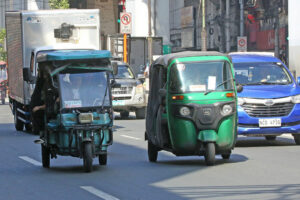THE Electric Vehicle Association of the Philippines (EVAP) said it is not seeking to extend the current zero-tariff policy for electric vehicles (EV), which runs until 2028, citing the need to support the domestic production of EVs.
“At the moment we’re not (seeking an extension) … we’re fine (2028). If we extend the tariff, this encourages imports. We’re pushing for localization,” EVAP President Edmund A. Araga said on the sidelines of the 12th Philippine Electric Vehicle Summit 2024 last week.
In May, the National Economic and Development Authority Board, chaired by President Ferdinand R. Marcos, Jr. expanded the coverage of Executive Order (EO) No. 12 to temporarily reduce tariffs on EVs to zero until 2028.
The zero-tariff policy covers e-motorcycles, e-bicycles, nickel metal hydride accumulator batteries, e-tricycles and quadricycles, hybrid EVs and plug-in hybrid EV jeepneys or buses.
EO 12, which was signed in 2023, temporarily removed the tariffs on EVs and parts and components for five years.
Mr. Araga has said that the EO helped improve the sales of EVs in the Philippines.
The group is projecting a 6.6 million EV fleet by 2030, mainly driven by hybrid and other light electric vehicles.
The Department of Trade and Industry said it hopes to issue the incentive scheme for EVs within the year.
The scheme outlines the perks for businesses that invest in domestic EV manufacturing, and will cover potential investors in the e-mobility industry. — Ashley Erika O. Jose

